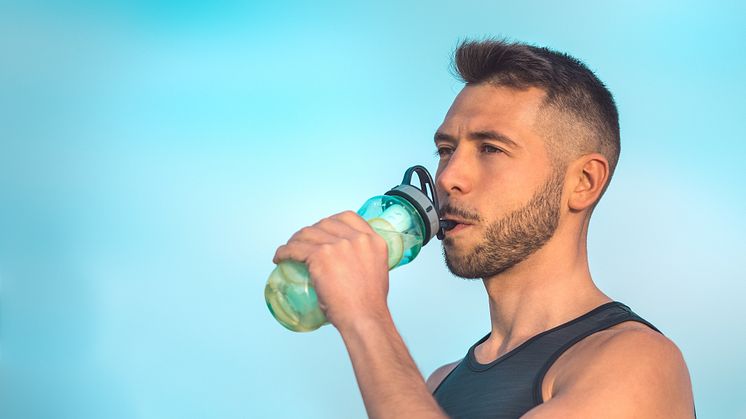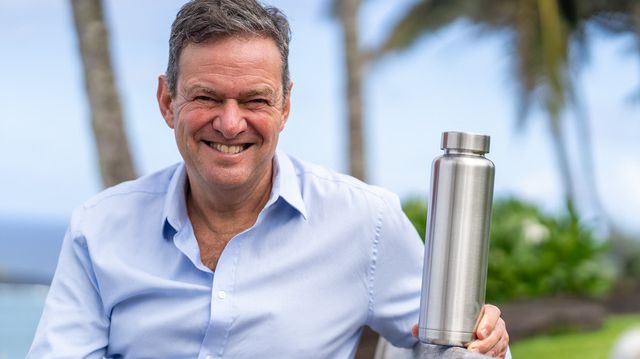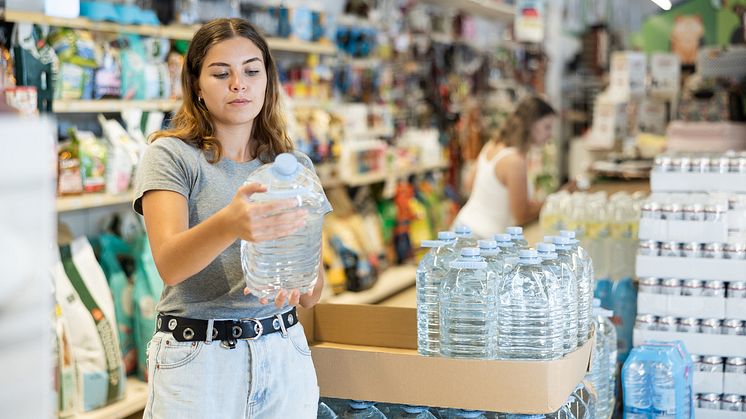
Press release -
Are reusable plastic bottles as potentially harmful to health as single-use bottles are said to be? New research underlines concerns, reports Bluewater
Stockholm, October 17, 2022 –– Swedish beverage company Bluewater, a world leader in water purification technologies for home and commercial use, says a new research study that identified hundreds of different chemical substances in tap water stored in reusable plastic bottles underscores an urgent need for more research and better regulation.
Published in the scientific journal Journal of Hazardous Materials, the study by Copenhagen University researchers revealed hundreds of chemicals in water stored for over 24 hours in plastic bottles, including substances never before found in plastic and substances considered potentially harmful to health. And after a dishwasher cycle, the number of chemical substances rose dramatically to several thousand.
"For the sake of our own health and that of our families, we must fight for better regulation and information about the potential health consequences of pouring chemicals from plastic bottles into our bodies," said Bluewater founder and CEO Bengt Rittri (Image below, holding a Bluewater stainless steel reusable bottle).

A Swedish environmental entrepreneur who spent 20 years building his indoor air purification enterprise Blueair into a significant global force for good before divesting the company to Unilever in 2016, Mr. Rittri added his voice to a call from the study's researchers for more detailed information from plastic bottle manufacturers on the chemical make-up of their products and better regulation.
The researchers, Jan H. Christensen, Professor of Environmental Analytical Chemistry at the University of Copenhagen's Department of Plant and Environmental Sciences, and fellow scientist Selina Tisler, studied how some popular types of soft plastic reusable bottles release chemical substances into liquids inside them.
They told Science Daily that they were taken aback by the large number of chemical substances they found. This included more than 400 different chemicals from the bottle plastic, over 3,500 substances derived from dishwasher soap, and substances never before found in plastic. Worse, the chemicals in the water in the bottles tested increased to several thousand after being stored for several hours following a dishwasher cycle.
The two researchers identified so-called photo-initiators among the toxic substances in the water, such as endocrine disruptors, which have been linked to potentially harmful effects on health in organisms. Professor Christensen and his colleague based their experiments on how people typically use plastic drinks bottles, drinking water that’s kept in bottles for several hours before and after machine washing.
Selina Tisler told Science Daily, "the most toxic substances that we identified actually came after the bottle had been in the dishwasher -- presumably because washing wears down the plastic and thereby increases leaching."
The Copenhagen University study found that in new reusable bottles, nearly 500 different substances remained in the water after an additional rinse, while over 100 of these substances came from the plastic itself.
According to Science Daily, Ms. Tisler added that following the research, she will now use a glass bottle.
Editors notes
Three types of drinking bottles were tested, all sold in Danish stores, writes Science Daily. Two bottles were made of biodegradable plastic, and both new and heavily used bottles were used in the tests.
For more information, please contact Dave Noble, Bluewater PR & Communications Director, at +44 7785 302 694 or david.noble@bluewatergroup.com
Topics
Categories
About Bluewater and FloWater
Stockholm-based Bluewater and Denver, Colorado-based FloWater merged in early 2022, and share a mission of innovating solutions for eliminating single-use plastic water bottles and providing access to safe, purified and great-tasting drinking water for everyone. With their beverages, advanced water purification tech, water refill stations and sustainable bottle solutions, Bluewater and FloWater provide water free of heavy metals, ‘forever chemicals’ (PFAS), bacteria or viruses, microplastics and other contaminants to consumers, business, schools and large-scale sports events globally. Both Bluewater and FloWater have been honored with Fast Company “World Changing Ideas” awards, and featured in numerous leading media, including CNN, Forbes, Inc., The Hollywood Reporter, The Financial Times, and The Daily Telegraph.
For additional information, visit www.bluewatergroup.com and www.drinkflowater.com
Follow Bluewater for water-related news on Facebook, Twitter and Wechat (Search ID: Bluewater). Journalists and bloggers can follow our press releases and blogs at http://www.mynewsdesk.com/us/bluewater. And everyone is welcome to enjoy our themed Bluewater music playlist on spotify at BluewaterPure Radio.




